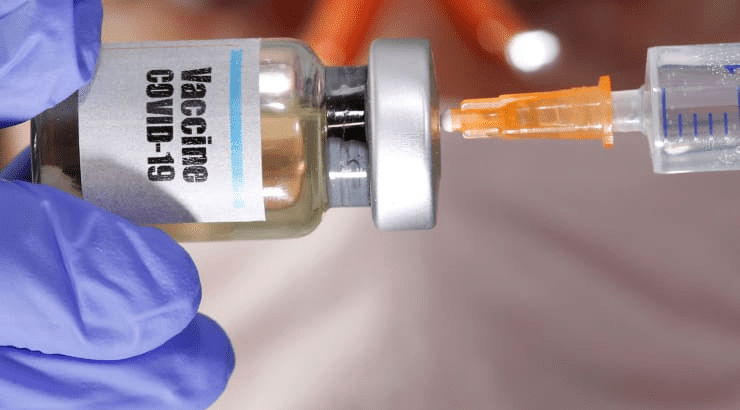A potential coronavirus vaccine developed by Oxford University with pharmaceutical giant AstraZeneca has produced a promising immune response in a large, early-stage human trial, according to newly released data published Monday in the medical journal The Lancet. The researchers are calling their experimental vaccine ChAdOx1 nCoV-19 (AZD1222). It combines genetic material from the coronavirus with a modified adenovirus that is known to cause infections in chimpanzees. The phase one trial had more than 1,000 participants in people ages 18 to 55.

AstraZeneca’s shares were down 2.5% in midday trading. The researchers said the vaccine produced antibodies and killer T-cells to combat the infection that lasted at least two months. Neutralizing antibodies, which scientists believe is important to gain protection against the virus, were detected in participants. The T-cell response did not increase with a second dose of the vaccine, they said, which is consistent with other vaccines of this kind.
“The immune system has two ways of finding and attacking pathogens — antibody and T cell responses,” Oxford professor Andrew Pollard said in a release. “This vaccine is intended to induce both, so it can attack the virus when it’s circulating in the body, as well as attacking infected cells. We hope this means the immune system will remember the virus, so that our vaccine will protect people for an extended period.”
The vaccine was found to be well-tolerated and there were no serious adverse events, according to the researchers. Fatigue and headache were the most commonly reported, they said. Other common side effects included pain at the injection site, muscle ache, chills and a fever.
Last week, biotech firm Moderna released promising data on its vaccine trial, saying it generated a “robust” immune response. That trial included 45 healthy participants and was run by the National Institutes of Health. Earlier this month, pharmaceutical giant Pfizer, alongside German drugmaker BioNTech, released positive results from its closely watched early-stage human trial. The company said its vaccine produced neutralizing antibodies in all participants who received two of the 10 or 30 microgram doses after 28 days, according to the preliminary data.
Coronavirus vaccine from Oxford and AstraZeneca shows positive response in early trial, CNBC, Jul 20